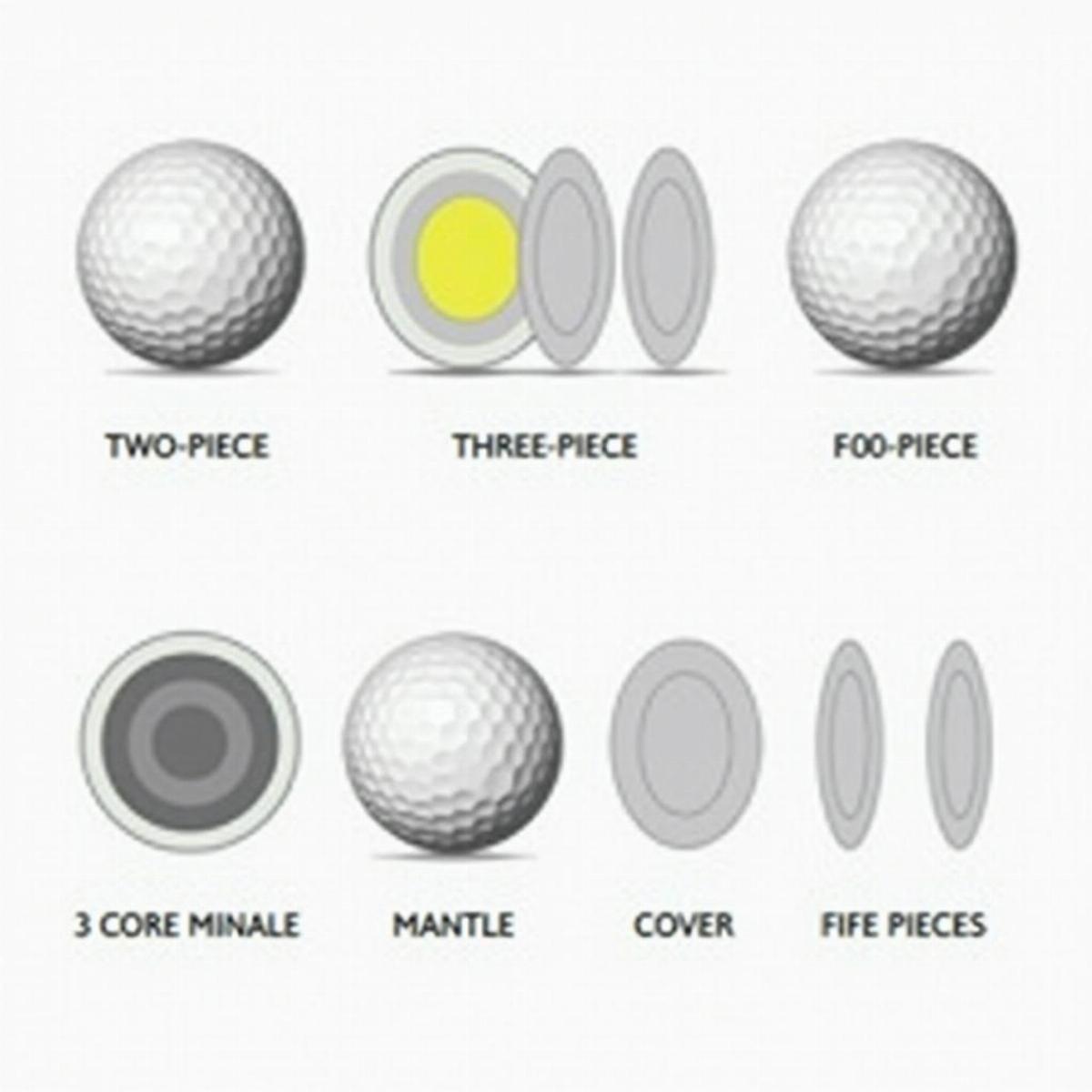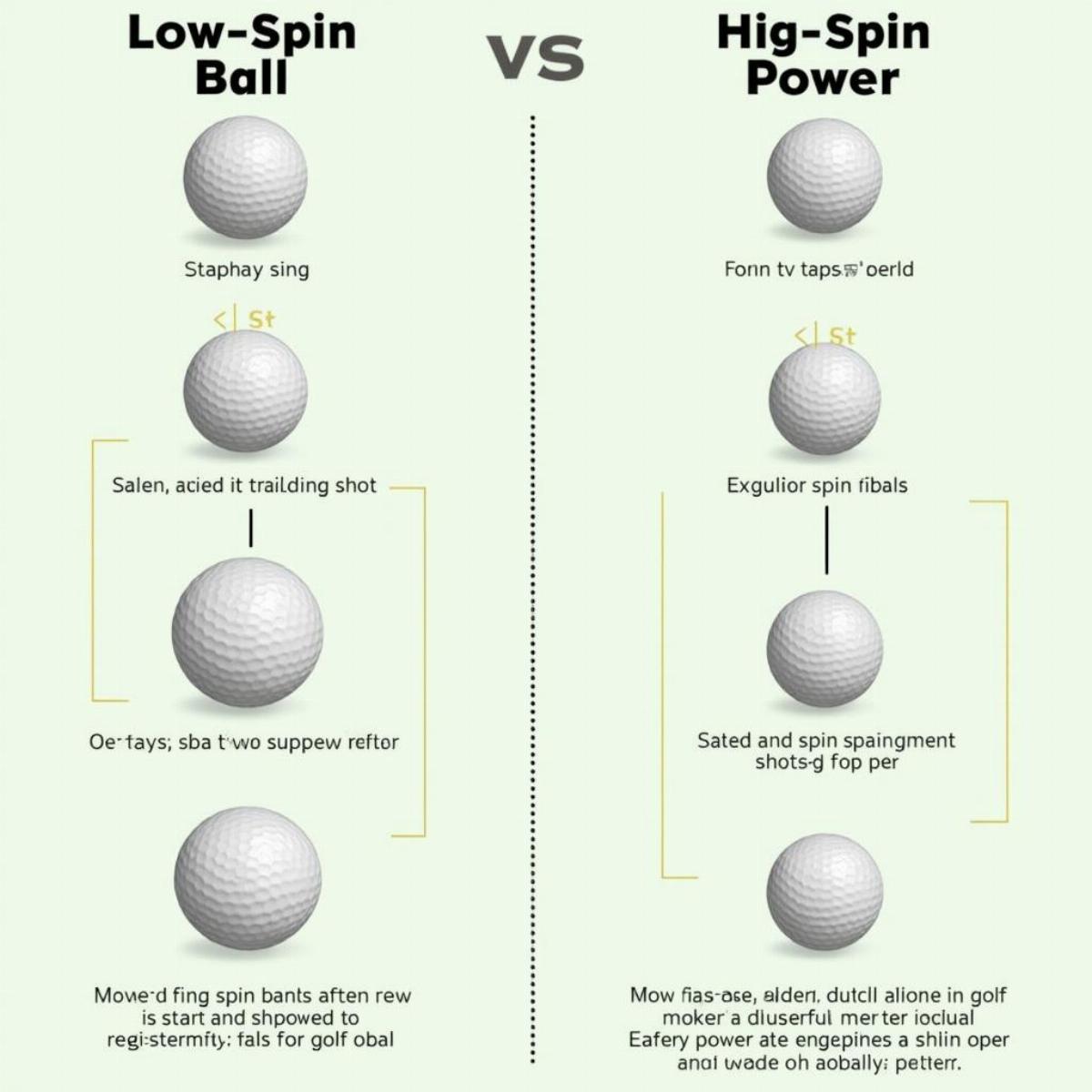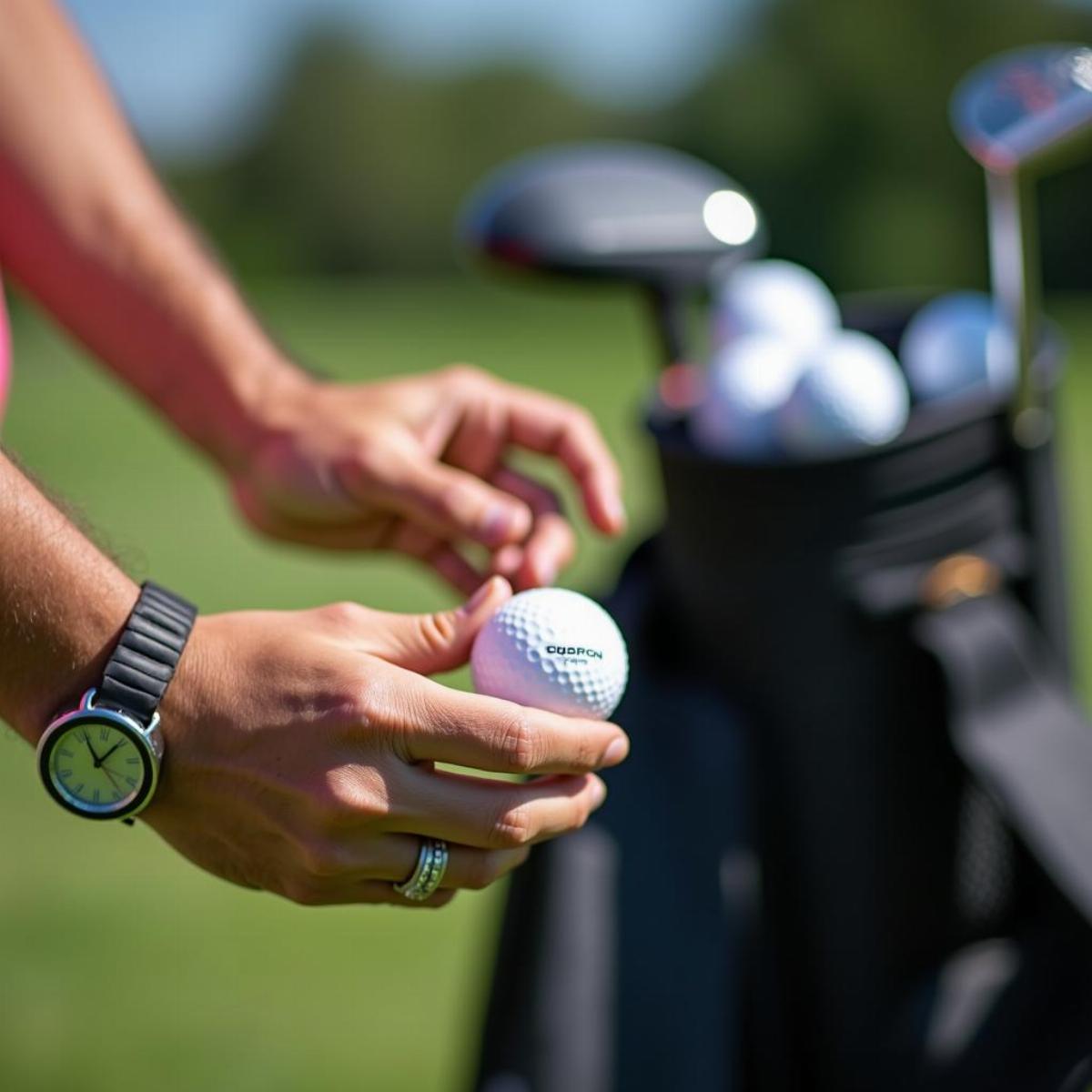Golf is as much a game of precision as it is of skill. One often-overlooked factor that can significantly influence your game is your choice of golf ball. With so many options on the market, it can be overwhelming to determine which golf ball is best suited for your game. In this guide, we’ll decode the complexities of golf balls, helping you discover the ideal match for your golfing style.
Understanding Golf Ball Types
Before we dive into which golf ball is best for you, let’s break down the different types of golf balls available. Understanding these can help you make a more informed choice.
Types of Golf Balls
- Two-Piece Balls
- Ideal for beginners.
- Made of a solid core and a plastic cover.
- Offers durability and distance.
- Three-Piece Balls
- Suitable for mid-level players.
- Features a solid core, a layer (or mantle), and an outer cover.
- Provides better spin control and feel.
- Four-Piece Balls
- Designed for advanced players.
- Includes two inner layers, a mantle, and an outer cover.
- Offers maximum control and spin.
- Five-Piece Balls
- The top choice for professionals.
- Offers unparalleled performance and distance control.
- Multifunctional for various swing speeds and conditions.
 Types of Golf Balls
Types of Golf Balls
How to Choose the Right Golf Ball
1. Assess Your Skill Level
- Beginner: Look for two-piece balls. They offer maximum distance with minimal spin, making them easier to hit.
- Intermediate: Consider three-piece balls to improve your control and feel around the greens.
- Advanced: Opt for four or five-piece balls to maximize performance, spin control, and overall interaction with the course.
2. Spin and Feel
Golf balls vary significantly in terms of spin and feel. Here’s how each affects gameplay:
- Low Spin: These balls typically fly straight and are great for beginners. They can help reduce slice and hook tendencies.
- High Spin: Designed for advanced players, these balls offer more control and can generate better stopping power on the greens.
- Soft Feel: Soft balls are great for around the green, giving a better touch on delicate chips and pitches.
- Firm Feel: Typically favored for distance and durability, providing better responses off the tee.
3. Distance vs. Control
- Distance Balls: Generally made from harder materials, these balls travel farther but may lack the feel. Ideal if you’re looking to maximize yardage.
- Control Balls: Softer with multilayered construction, offering better performance for skilled players. If you want your shots to react precisely on the greens, go for a control ball.
4. Weather and Course Conditions
Different weather conditions and course settings can also impact your ball choice:
- Wet Conditions: Choose a ball with a firmer cover to resist water and maintain distance.
- Windy Conditions: Opt for a lower-spinning ball to help reduce the flight’s trajectory against the wind.
- Hard Greens: If you often play on hard surfaces, a higher-spinning ball will help you hold the green better.
 Golf Ball Spin Comparison
Golf Ball Spin Comparison
Popular Golf Balls in the Market
Here’s a quick table of some popular golf ball brands and their distinctive features.
| Brand | Model | Type | Best For |
|---|---|---|---|
| Titleist | Pro V1 | 4-Piece | Advanced players |
| Callaway | Chrome Soft | 3-Piece | Mid to advanced players |
| TaylorMade | TP5 | 5-Piece | Professionals |
| Srixon | Z-Star | 3-Piece | Competitive players |
| Bridgestone | Tour B RX | 3-Piece | All-around performance |
| Wilson Staff | Duo Soft | 2-Piece | Beginners |
Key Considerations While Choosing
- Budget: Quality golf balls can range widely in price. Make sure your choice aligns with your budget without compromising on performance.
- Brand Preference: Many golfers are loyal to specific brands. Trying a few different brands can help you find the one that feels best.
Additional Tips
- Experiment: Don’t be afraid to test different types and brands. Buying a variety pack can be a great way to see what works for you.
- Focus on One Type: Once you find a ball that seems to suit your game, consider sticking with it for a while. Familiarity can lead to more consistent performance.
 Choosing the Right Golf Ball
Choosing the Right Golf Ball
Key Takeaways
- Understanding different types of golf balls is essential for making an informed choice.
- Assess your skill level to select the appropriate ball type.
- Consider the spin, feel, distance, and control aspects of the balls.
- Adapt your choice based on weather conditions and course settings.
- Experiment with different brands and types to find the one that fits your game best.
FAQ Section
1. Do I need a different ball for every round?
Not necessarily. Once you find a ball that suits your game, sticking with it is advisable for consistency.
2. What’s the best golf ball for beginners?
Two-piece balls like the Wilson Duo Soft are generally recommended for beginners due to their distance and forgiveness.
3. How often should I change my golf balls?
If your ball is scuffed or damaged, replace it before continuing. Otherwise, changing them every few rounds is typical.
4. Are expensive balls worth it?
This depends on your skill level. Advanced players may benefit from high-end balls, while beginners might find good performance in budget options.
5. What’s the difference between soft and hard golf balls?
Soft balls offer better feel and control, especially around the greens, while hard balls yield better distance but may lack feedback.
6. Can the weather affect which ball I should use?
Absolutely! Choose harder balls in wet conditions and lower-spinning balls in windy conditions for best results.
7. Should I match my ball to my swing speed?
Yes, matching your ball to your swing speed can optimize your performance, providing better distance and control.
8. How do I know if a golf ball is suitable for me?
Trial and error can help. Test different balls to see how they perform for your swing style and playing conditions.
9. Is a softer ball better for putting?
Generally, softer balls provide better feel for delicate shots around the green, including putting.
10. Can I mix brands during a round?
While mixing brands is allowed, it’s advisable to stick with one brand/type for consistency in performance.
Conclusion
Choosing the best golf ball can significantly impact your game, enhancing your enjoyment and performance. By understanding the various factors at play—your skill level, preferences, and conditions—you can find the ideal match for your golfing experience. Now, equipped with this knowledge, you’re ready to step onto the course with greater confidence in your ball choice! Happy golfing!